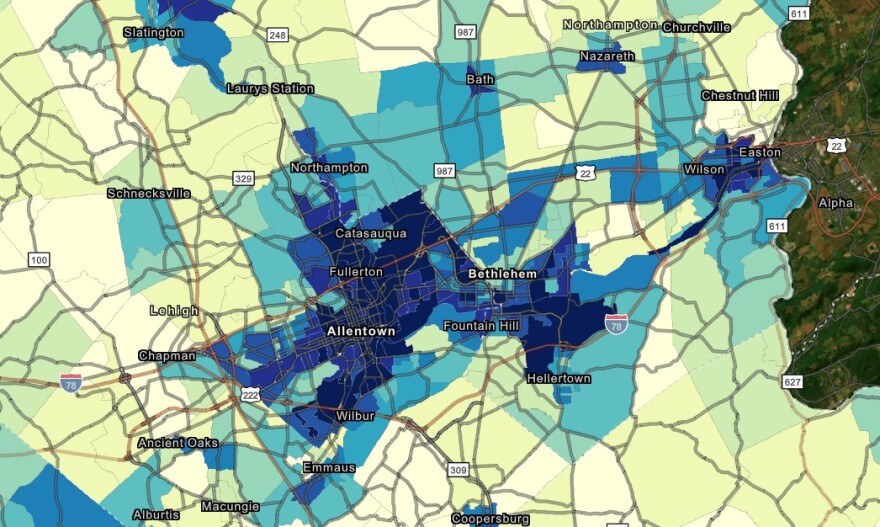- The Pennsylvania Department of Environmental Protection is seeking feedback on its environmental justice policy
- The public comment period is open through Oct. 29
- No in-person meetings are scheduled for the Lehigh Valley, but there are two virtual sessions
BETHLEHEM, Pa. — A series of in-person and virtual meetings aimed at collecting feedback about the state’s new environmental justice policy are scheduled for this month.
“The goal of these meetings is to engage Pennsylvanians in shaping environmental justice policy for communities across the commonwealth,” according to a Friday news release from the state Department of Environmental Protection. “The public comment period began on Sept. 16, 2023, and extends through Oct. 29, 2023.
“This allows enough time for interested individuals, stakeholders, and organizations to provide input on this critical policy.”
State officials in mid-September adopted an interim final Environmental Justice Policy, focused on creating environmental equity throughout the commonwealth. With that foundation already in place, officials said the meetings will act as a platform for residents or organizations to raise thoughts, concerns, and suggestions.
All Pennsylvanians have the right to clean air, pure water, and to the preservation of the natural, scenic, historic and esthetic values of the environment.Pennsylvania Department of Environmental Protection's interim final Environmental Justice Policy
“All Pennsylvanians have the right to clean air, pure water and to the preservation of the natural, scenic, historic and esthetic values of the environment,” according to the introduction of the policy, available on the DEP’s website. “However, historically and currently, low-income and low-wealth communities and communities of color bear a disproportionate share of detrimental environmental impacts with accompanying adverse health impacts.”
What is environmental justice?
As diversity, equity, and inclusion efforts have permeated businesses and organizations, so have they been applied to some state agencies.
The DEP's interim final policy includes a working definition of environmental justice, arguing that it is “just treatment and meaningful involvement of all people … in agency decision-making and other activities that affect human health and the environment.”
With this framework in mind, the goal is to make sure all people “are fully protected from disproportionate and adverse human health and environmental effects (including risks) and hazards, including those related to climate change, the cumulative impacts of environmental and other burdens, and the legacy of racism or other structural or systemic barriers.”
It’s also aimed at creating “equitable access to a healthy, sustainable and resilient environment in which to live, play, work, learn, grow, worship and engage in cultural and subsistence practices. It further involves the prevention of future environmental injustice and the redress of historic environmental injustice.”
In order to find areas of the state experiencing inequity, officials created a system and mapping tool to highlight areas in need as an “EJ Area.” Those are census tracts in which 20% or more people live at or below the federal poverty line, and/or 30% or more identify as a non-white minority, based on data from the U.S. Census Bureau and the federal guidelines.
Of the Lehigh Valley’s major cities, Allentown, Bethlehem, and Easton, all have tracts categorized as an Environmental Justice Area, according to PennEnviroScreen, the state’s mapping and screening tool.
Upcoming meetings
According to the release, there will be seven in-person public comment meetings and two hosted virtually. Places where in-person meetings will be held include Philadelphia, Scranton, Harrisburg and Pittsburgh, but do not include the Lehigh Valley.
The two virtual meetings are scheduled for Oct. 11 and Oct. 25. For more information, and to register, visit the DEP’s website.


